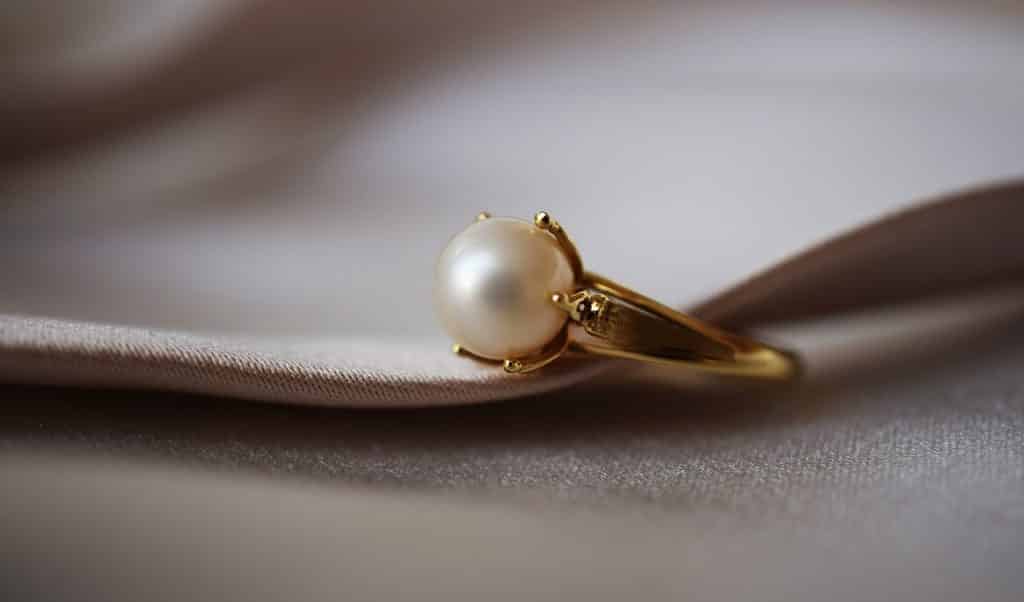Masses of people love to wear jewelry and in today’s world, the craze is not common to girls only. Apart from jewelry, body piercings unusually of ear, nose, lip, and chin are also in fashion. Body piercing came into vogue some 5000 years ago, and it is still a core part of tradition considering nose and ear piercings in the Asian countries. The queer trend of tongue and lip piercing that rules the world originated in Africa.We seldom remove any of these, hence become obsessed with our jewelry or piercings. Some may also hold sentimental values to us. And that’s the primary reason we think twice before going to the operation theatre. If it is not a serious accident-case surgery i.e. burn incident; where removing jewelry is a fundamental step to avoid any further harm, we might have a chance to ask our concerned doctor if it is OKAY to keep wearing the jewelry in surgical procedures.
Should we remove our jewelry before surgery?
A huge number of medical professionals practice the universal rule of the removal of jewelry before operation theatre proceedings. The piercing can interfere with any operation processes that doctors might not notice, and you would not feel at the moment under the anesthesia effect. “There are some quite logical reasons as to why the jewelry should be removed before surgery with surgical burnings atop the list,” says Dr. Jon Paul Trevisani, a renowned plastic surgeon. He is certified by the American Society for Plastic Surgery and treasures prestigious awards incl. Patients’ Choice Award.
You can’t cry on a diamond’s shoulder, and diamonds won’t keep you warm at night, but they are sure fun when the sun shines.
– Elizabeth Taylor

Reasons to take out jewelry before surgery
The reasons to remove jewelry and body piercings before surgery may have a medical or nonmedical basis. Although there are few reported complications because of wearing jewelry during the surgery, it is better not to take the risk.
Medical Reasons
Medical reasons encompass all the potential health risks associated with wearing jewelry into the operation theatre. These include surgical burns, swelling, infections, and hampered blood circulations. These factors are hugely underestimated when questioned if it is okay to wear jewelry during surgery. Have a read on how it goes with medical processes.
- Surgical Burns
The first risk is of surgical burns during the surgery. Surgical procedures use ELECTROCAUTERY. It is a technique in which a high-frequency electric current is passed through an electrode that produces heat. The heat is used for incision, removal of unhealthy body tissues or to seal the blood vessels to minimize blood loss and to maintain homeostasis.
In electrocautery, the current does not pass through the patient because a grounding pad is used in surgery. However, if the patient is wearing any jewelry, the electric current can flow throughout the body to the area she/he is wearing the jewelry or piercing.
The heat produced by the electric current can heat the metal and cause heat burs. Or if the metal jewelry came in contact with body fluids, i.e. blood or any other chemical solution, the electric current can fall short and could lead to something pernicious. This would also damage or tarnish your precious jewelry which would have been safe otherwise if removed. Hence, for the safety of the patient from any possible electric/surgical burn, it is recommended to remove the jewelry or any piercing before the commencement of the process.
- Swelling
Swelling is common during surgical and post-surgical medical operations. Medical and paramedical staff fears that jewelry can impede the blood circulations in case of swelling. The wedding ring that fits perfectly in your finger for years you forgot to remove and the doctors didn’t notice could restrict the blood flow during surgery. It puts an additional strain on the blood vessels already swollen. And it might be removed by cutting it. Hence removal and a safe keep of the jewelry are better than its damage.
- Infections
It is a safe practice to remove jewelry to avoid any infection. Fixed pieces of jewelry like ear, nose or lip, or other body piercings are non-sterile products and can be the hotspots for infectious agents. Several viruses and bacteria hold on to the surfaces and can be transferred into the body through an open wound. Healthcare-associated infections (HAIs) appear to be an important public health concern. A report published by the Public Health Agency of Canada in 2012 highlighted that about 10% of hospitalized patients could develop such infections.
The use of soap and disinfectant are important in the prevention of infections transferred through the skin route. But the wearing of hand or wrist jewelry staves off sanitization. The area under the ring or wrist band/ bracelet is not exposed completely for proper washing with disinfectant and might be heavily colonized with infectious agents. Hand jewelry might also lead to the tearing of medical PPEs like gloves. Therefore, it is better to remove jewelry before surgery than to carry new infectious agents for the next appointment.
- Imaging diagnosis
If you are advised of an imaging diagnosis by your doctor, it is preferred to remove your piercings or jewelry beforehand. The imaging diagnosis may include a teeth x-ray in which tongue or lip piercing (if you have one) could interfere. The radiologist could miss damage on either side of your jaw.
That’s one of many examples. Other examples include breast piercing and navel piercings. Just don’t forget to mention to the radiologist, lab technician, or paramedical staff about any facial or private piercing to avoid heat burns or an inappropriate x-ray result.
Non-Medical Reasons
This section heads the damage to jewelry and financial losses associated with jewelry damaged, loss, and theft. These factors are usually overlooked, but once lost, the owner creates a hell of drama in the hospital.
- Damage to jewelry
Wearing any jewelry into the operation theatre could not only risk your life, but also the jewelry itself. It can be damaged during the proceedings. For example, if it is a ring with a big diamond stone on it, the precious stone can be lost during the operation. If it a hand bracelet, it might entangle with any personal protective equipment doctors or assistive staff is wearing.
Furthermore, if any jewelry came in contact with a chemical solution or body fluids, it could get tarnish or lose its shine and value.
- Financial losses related to the jewelry
Hospitals are full of people from every cycle of life. Among people at the hospital with some loved one or close relative in serious condition, someone might run short of money to bear the medical or surgical expenses. It is a pity that doctors don’t enter the patient into emergency rooms, leaving aside the ICUs and operation theatres, unless they have received an initial investment in the name of hospital fees and medical expenses. Such people could go to any lengths to save their loved ones in fear of losing them. Also, there might be some professional thief roaming in the disguise of a patient or a visitor.
While the doctors and paramedical staff are preparing for the operation theatre; and your relatives busy in hospital formalities or arranging blood and donors for you, there’s a golden chance for such calamity-stricken people and looters to snatch your precious jewelry to which you are so emotionally attached. Be it your wedding ring or your birthday present of a beautiful necklace. Once gone, you’d never get to wear it again. Therefore, it is better to leave it in a safe deposit at home rather than worrying about its safety pre and post-surgery.
What if Patients Insists on Wearing Jewelry during Surgery?
Sometimes patients insist on wearing the jewelry during surgery. In such cases, it is advised to use a proactive approach.
Discuss Hospital No-Jewelry Policy
Many hospitals have drafted and revised their policies regarding the wearing of jewelry in an operation theatre. According to the policy, doctors or surgeons must discuss the implications of wearing jewelry to the operation theatre room. They must present the hospital surgical policy to the patient. A patient must know the potential risk he/she is taking by underestimating the wearing of jewelry during surgical operations. And that they will be responsible for any damage or losses.
Insulator Tapes
If the patient still insists after discussing the risks associated with wearing the wedding ring into the operation room; arguing that the surgery is not of the hand, it must be covered with surgical tape keeping the patient’s safety in view. The surgical tape acts as an insulator. Thus minimizing the risk imposed by electrocaution.
Plastic Replacements
Another important reason for not removing the jewelry or piercings during MRI, operation, or surgery is the fear of closing off of the piercing hole. To avoid the clogging of the piercings hole, patients are recommended to use plastic replacements. These are safe to use in the operation theatre as compared to metal jewelry or piercings. These can be removed, sterilized, and placed on again during preparation for surgery.
To wrap it up, it should be a logical choice rather than a sentimental one when you ask yourself if removing jewelry before surgery is worth it or not.

